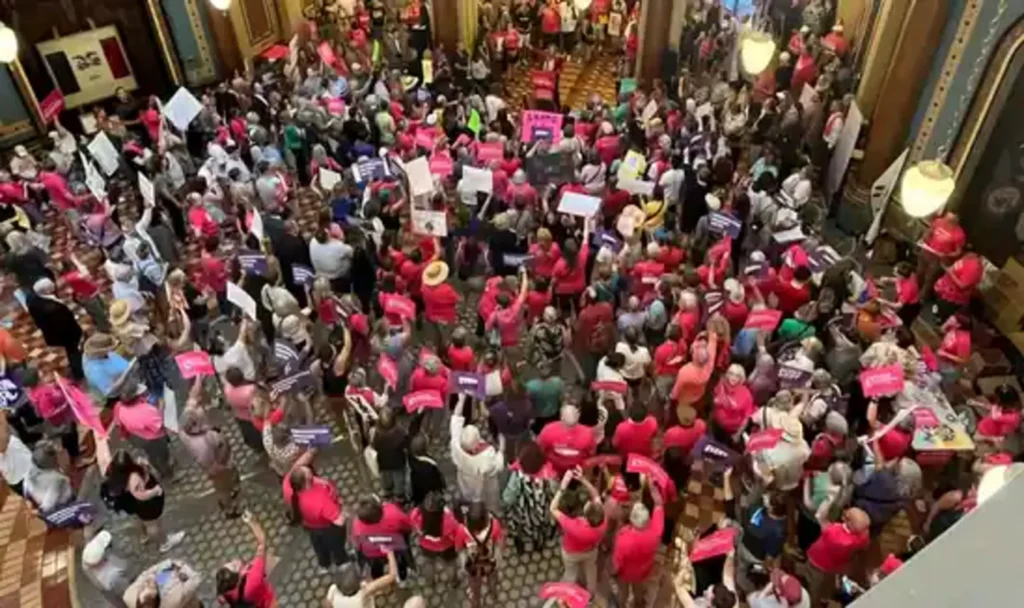In a marathon special session that stretched into the late hours of Tuesday, Iowa’s Republican-led Legislature successfully passed a bill that effectively bans most abortions after approximately six weeks of pregnancy. The legislation received exclusive support from Republican lawmakers and is set to be signed into law by Governor Kim Reynolds on Friday, as she swiftly pledged in a statement following the bill’s passage. The move has sparked intense debates and protests, with Democratic lawmakers and abortion advocates vehemently opposing the measure.
During the lengthy legislative session, which lasted over 14 hours, tensions ran high as Democratic lawmakers and abortion rights advocates made their objections known. In a moment of unrest, protesters in the gallery expressed their disapproval by booing and shouting “shame” at state senators shortly after the bill’s approval. Governor Reynolds called for this rare session in response to the Iowa Supreme Court’s decision in June to not reinstate a nearly identical law that she had signed in 2018. Reflecting on the court’s skepticism about the legislature’s willingness to pass the same law again, Reynolds stated, “The Iowa Supreme Court questioned whether this legislature would pass the same law they did in 2018, and today they have a clear answer.”
She emphasized that the voices of Iowans and their elected representatives should not be disregarded any longer, asserting the need for justice for the unborn. Currently, abortion is legal in Iowa up to 20 weeks of pregnancy. However, once Governor Reynolds signs the new legislation, it will take immediate effect, significantly restricting access to abortions. The bill prohibits nearly all abortions once cardiac activity can be detected, which typically occurs around six weeks of pregnancy, often before many women even realize they are pregnant.
The passage of this controversial bill has reignited the ongoing debate surrounding reproductive rights in Iowa and across the nation. Supporters of the legislation argue that it protects the rights of the unborn and reflects the will of the state’s citizens. On the other hand, opponents contend that the measure infringes upon women’s reproductive freedom and poses a threat to their healthcare choices. As the news spreads, various organizations and activists on both sides of the abortion issue are likely to intensify their efforts to sway public opinion and potentially challenge the law in court. The implications of this legislation extend beyond Iowa’s borders, with the outcome potentially influencing the larger national discourse on abortion rights.
